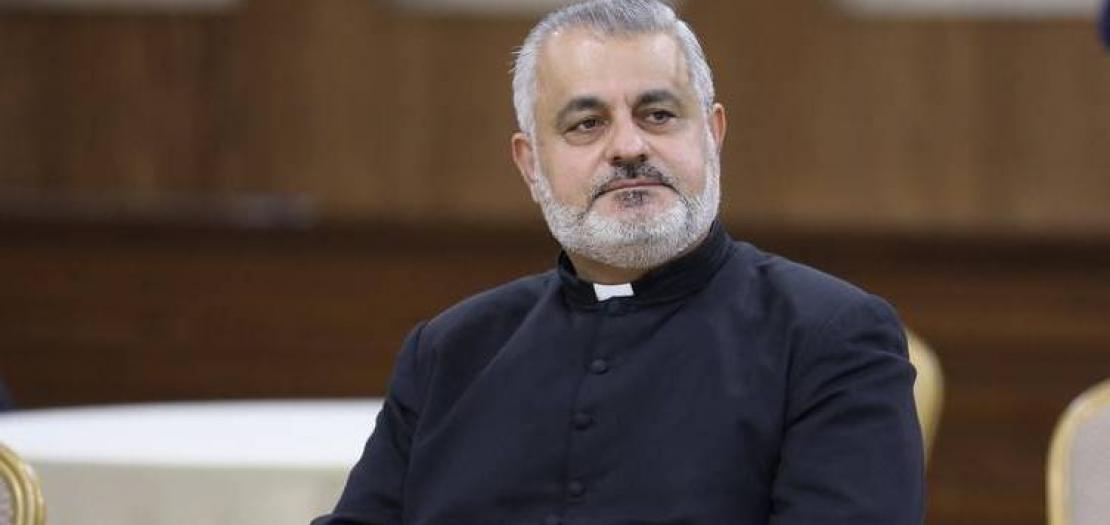Issued by the Catholic Center for Studies and Media - Jordan. Editor-in-chief Fr. Rif'at Bader - موقع أبونا abouna.org
Pope mentions seven Arab countries on Easter Sunday
In his address Urbi et Orbi ('to the city [of Rome] and to the world') which he generally makes on his election as head of the Catholic Church, on Christmas day, and on Easter day, His Holiness Pope Francis touched on several general humanitarian issues that pertain to the human family in general, with particular reference to the pandemic which is still burdening the world. His Holiness the Pope prayed for all the sick and for all those who lost their loved ones hoping that the Lord would console them and boost the efforts exerted by doctors and nurses. He also said that there are people who need necessary care more than others. He also expressed support for the propitious efforts exerted in fighting the pandemic, especially with regards to vaccines which are an essential tool in this battle. In keeping with the global availability of vaccines, His Holiness urged the entire international community to make a joint commitment to overcome the delay in their distribution especially to the poorest countries.
In this regard, it is important to mention that Pope Francis mentioned seven Arab countries in his official address on Easter day which was marked on Sunday, April 4. He greeted Lebanon and Jordan, as they are hosting numerous refugees who fled the conflict in Syria. After speaking of solidarity and human fraternity, he made a heartfelt appreciation to the countries that had welcomed those who were suffering and were looking for refuge. We are proud in Jordan that our beloved country was among the countries that the Pope thanked on Easter Day.
Then, he referred to the Lebanese affair especially in this period of difficulty and uncertainty. He reiterated his hope that Lebanon would remain a land of encounter, common living, and plurality. Then he talked about Syria, as he always refers to it as the “beloved" and the "tormented" country, where millions of people live in inhuman conditions. He also addressed Yemen, whose events are surrounded by a “deafening and scandalous silence”, according to the head of the Catholic Church.
Mentioning Libya, he said that we finally see a glimmer of hope for a way out of a decade of differences and bloody clashes. He urged all concerned parties to make effective efforts to end conflicts and allow the war-weary people to live in peace and to start rebuilding their countries.
The Pope also touched on Iraq, which is dear to his heart these days, as a month has passed since his historic visit which was fraught with dangers, including security risks, political complications and health problems that Iraq suffers from, just like any country in the world. He said that he was pleased to visit Iraq last month, and asked that Iraq would continue to proceed on the path of peace already launched until the realization of God’s dream of a hospitable and generous human family that includes all its children.
As the Feast of the Resurrection takes us to Jerusalem, so the Pope hoped that this city would enjoy peace and security so that it would be a meeting place where everyone shares brotherhood with others, and where Israelis and Palestinians restore the momentum of dialogue so as to reach a permanent solution. The Pope also asserted the Holy See’s (the Vatican) constants which call for the attainment of a two-state solution and for ensuring living side by side in peace and prosperity.
In conclusion, we pray for the healing for humanity as well as for the healing of our Arab countries from what befell them ten years ago caused by the ramifications of the so-called Arab Spring, which Pope Francis summarized at the feast of Easter this year. We pray for the attainment of an undisturbed life for all, for reassurance and for stability for the beloved countries in order to continue their humanitarian mission that acquires the appreciated and gratification of the entire international community.
abouna.org@gmail.com







